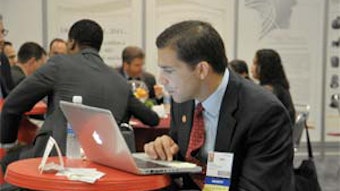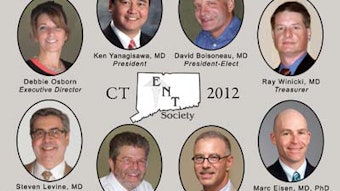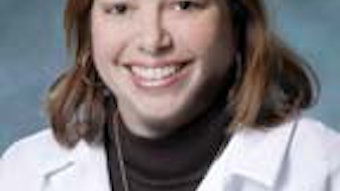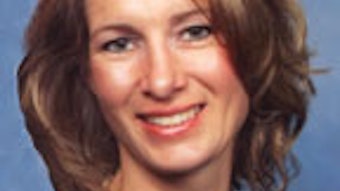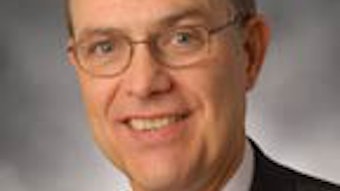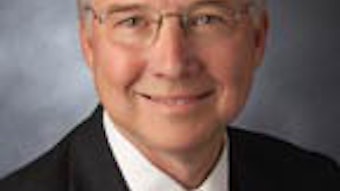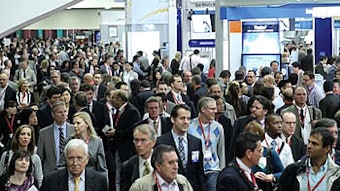Empty Nest: Crisis, Challenge, or Relief?
By Kathleen Yaremchuk, MD, for the Women in Otolaryngology Section The term “empty nest syndrome” refers to a sense of sadness and loneliness that may occur after a grown child leaves home. Although women and men may parent equally, the primary caregiver is most likely to experience that feeling. The transition affects many tasks considered a major focus of the nurturing parent role, such as organizing or overseeing the typical school activities of athletics, social commitments, and parent-teacher conferences. As a physician and a parent, one makes compromises and decisions on whether to attend soccer games, after-school activities, and parent-teacher conferences or to pursue professional advancement by engaging in research, journal club, specialty medical societies, and departmental meetings. With limited hours in the day, the opportunity to serve on institutional committees or attend meetings that require travel and time away from home often means missing out on a family dinner or children’s activities. The decision to favor parenting activities instead of professional pursuits isn’t meant to be intentionally detrimental to a career, but is based on priorities at the time. Children aren’t always going to be young and want their parents at a special event. Nevertheless, these commitments can be problematic when the operating room is running late or the on-call emergency beckons. Usually, there are times in every parent’s experience that induce a feeling of guilt because of missed opportunities. Much of family life revolves around the children’s schedule. When the last child heads off to college or work, parents and the rest of the family often experience a void in social activities. For some, this leads to depression and a loss of purpose. There is often an underlying concern that the child is unprepared for life on his/her own. How will the child survive without the parents? The challenge is to be emotionally prepared for the change in relationship with the children and to learn to maintain communication without the daily face-to-face at home. Texting, email, and cell phone chats allow frequent contact and communication. Online chats can provide the visual contact that many have come to depend on. The newfound free time can be problematic for some parents while others breathe a sigh of relief. It is a time to reconnect with a spouse and share mutual interests. Travel, hobbies, and professional growth are areas that can be cultivated in a way that was not possible previously. Without the pressure of rushing home to make dinner and sit with the family, there is time to meet with friends and reconnect anew. Similarly, professional contacts that have been made during the years can be leveraged to do research and advance professionally. The AAO-HNSF Annual Meeting & OTO EXPO, Combined Section Meeting, and Combined Otolaryngology Spring Meetings (COSM) are all opportunities to travel, learn, and spend time with colleagues. The many committees of the AAO-HNS and specialty societies are always looking for members to volunteer time and knowledge to further the aims of otolaryngology. A common misconception is that to become an active participant in our specialty it is necessary to do so right after residency. In fact, the “right time” is whenever you are ready to raise your hand and volunteer for an assignment. There is no dearth of work for the willing participant. All AAO-HNS committees welcome members to attend meetings, even if they are not formal members of the committee. The multitude of committees are listed on the Academy’s website, so make plans to attend a committee meeting that interests you this September in Washington, DC. Many individuals in academics may have been limited in their activities because of constraints from home. With the freedom of the “empty nest” and newfound time, an interest in research or leadership can become a reality. Develop a game plan that includes sharing your goals with the chair of the department, dean, or chief medical officer. Sign up for courses offered internally or through affiliated institutions that will help you grow. Similarly, mentors within the department or in other departments can give advice and help in reinventing yourself. Professional volunteerism will help in many ways, too. It is never too late to learn and challenge yourself personally or professionally. While much of this discussion has centered on professional development, the spirit of volunteerism can be given to the community or spiritual institutions. It’s important to recognize what gives you happiness and fulfillment at the end of the day. Keep in mind, just when you are recovering from the empty nest and bursting with energy, the kids may come home. This new phenomenon has been described by social psychologists as the “boomerang kids.” They are adult children between the ages of 25 and 34 who live with their parents after college because they “want the limited responsibility of childhood and the privileges of adults.” So take advantage of your empty nest freedom and look over your shoulder for the “boomerang” effect.
By Kathleen Yaremchuk, MD, for the Women in Otolaryngology Section
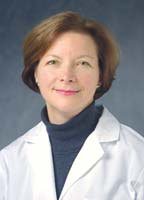
With limited hours in the day, the opportunity to serve on institutional committees or attend meetings that require travel and time away from home often means missing out on a family dinner or children’s activities. The decision to favor parenting activities instead of professional pursuits isn’t meant to be intentionally detrimental to a career, but is based on priorities at the time. Children aren’t always going to be young and want their parents at a special event. Nevertheless, these commitments can be problematic when the operating room is running late or the on-call emergency beckons. Usually, there are times in every parent’s experience that induce a feeling of guilt because of missed opportunities.
Much of family life revolves around the children’s schedule. When the last child heads off to college or work, parents and the rest of the family often experience a void in social activities. For some, this leads to depression and a loss of purpose. There is often an underlying concern that the child is unprepared for life on his/her own. How will the child survive without the parents?
The challenge is to be emotionally prepared for the change in relationship with the children and to learn to maintain communication without the daily face-to-face at home. Texting, email, and cell phone chats allow frequent contact and communication. Online chats can provide the visual contact that many have come to depend on. The newfound free time can be problematic for some parents while others breathe a sigh of relief. It is a time to reconnect with a spouse and share mutual interests. Travel, hobbies, and professional growth are areas that can be cultivated in a way that was not possible previously. Without the pressure of rushing home to make dinner and sit with the family, there is time to meet with friends and reconnect anew. Similarly, professional contacts that have been made during the years can be leveraged to do research and advance professionally.
The AAO-HNSF Annual Meeting & OTO EXPO, Combined Section Meeting, and Combined Otolaryngology Spring Meetings (COSM) are all opportunities to travel, learn, and spend time with colleagues. The many committees of the AAO-HNS and specialty societies are always looking for members to volunteer time and knowledge to further the aims of otolaryngology. A common misconception is that to become an active participant in our specialty it is necessary to do so right after residency. In fact, the “right time” is whenever you are ready to raise your hand and volunteer for an assignment. There is no dearth of work for the willing participant. All AAO-HNS committees welcome members to attend meetings, even if they are not formal members of the committee. The multitude of committees are listed on the Academy’s website, so make plans to attend a committee meeting that interests you this September in Washington, DC.
Many individuals in academics may have been limited in their activities because of constraints from home. With the freedom of the “empty nest” and newfound time, an interest in research or leadership can become a reality. Develop a game plan that includes sharing your goals with the chair of the department, dean, or chief medical officer. Sign up for courses offered internally or through affiliated institutions that will help you grow. Similarly, mentors within the department or in other departments can give advice and help in reinventing yourself. Professional volunteerism will help in many ways, too.
It is never too late to learn and challenge yourself personally or professionally. While much of this discussion has centered on professional development, the spirit of volunteerism can be given to the community or spiritual institutions. It’s important to recognize what gives you happiness and fulfillment at the end of the day.
Keep in mind, just when you are recovering from the empty nest and bursting with energy, the kids may come home. This new phenomenon has been described by social psychologists as the “boomerang kids.” They are adult children between the ages of 25 and 34 who live with their parents after college because they “want the limited responsibility of childhood and the privileges of adults.”
So take advantage of your empty nest freedom and look over your shoulder for the “boomerang” effect.
